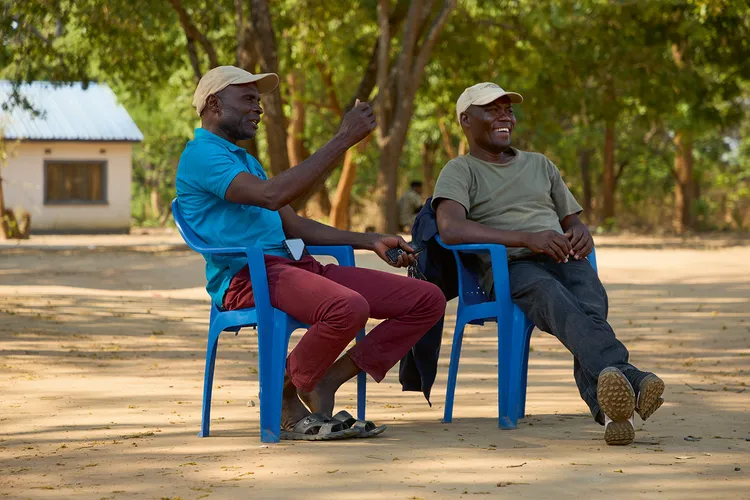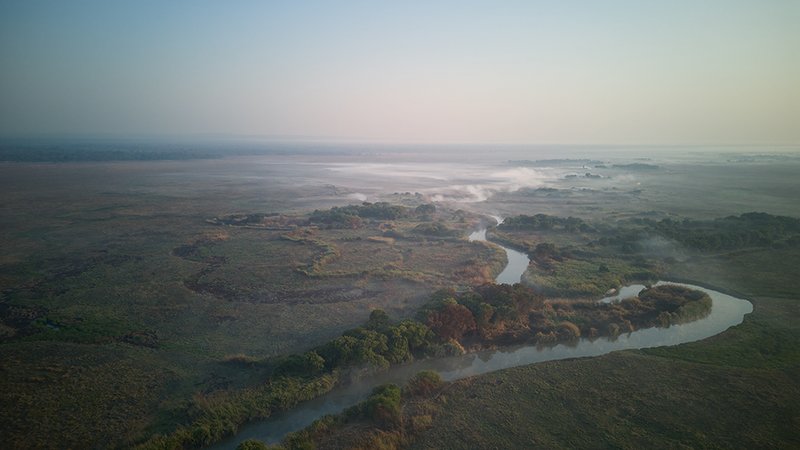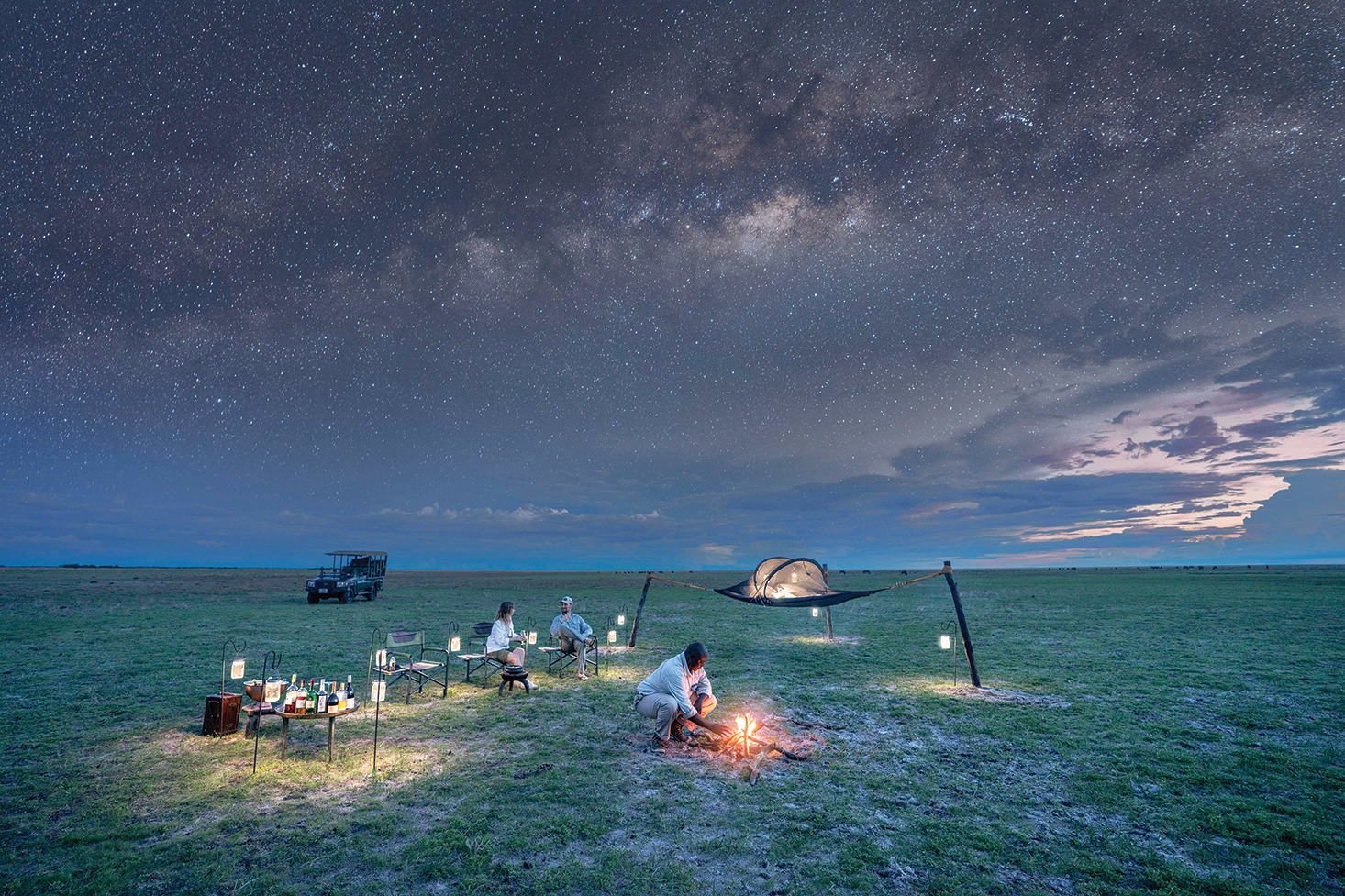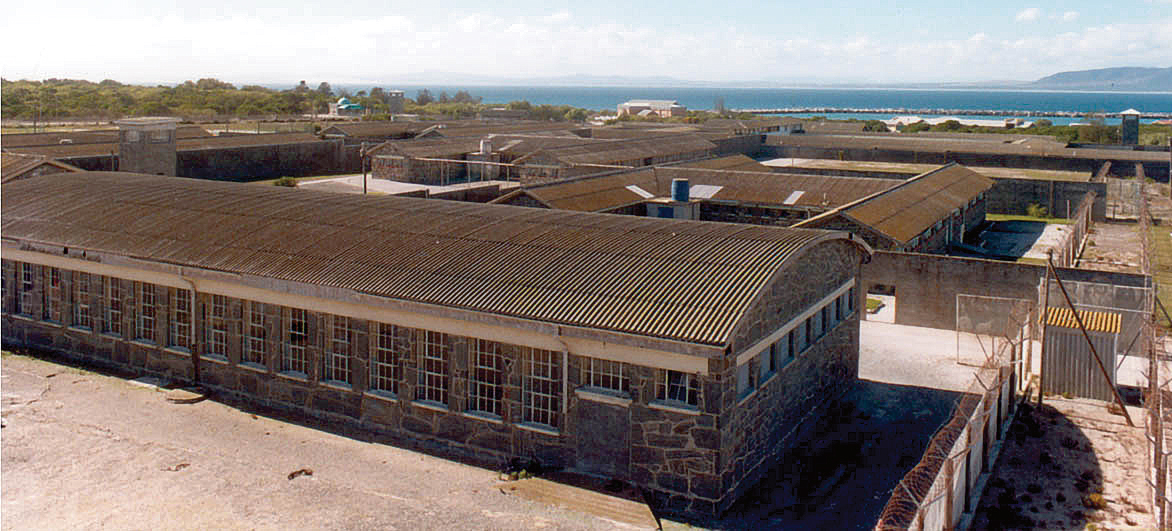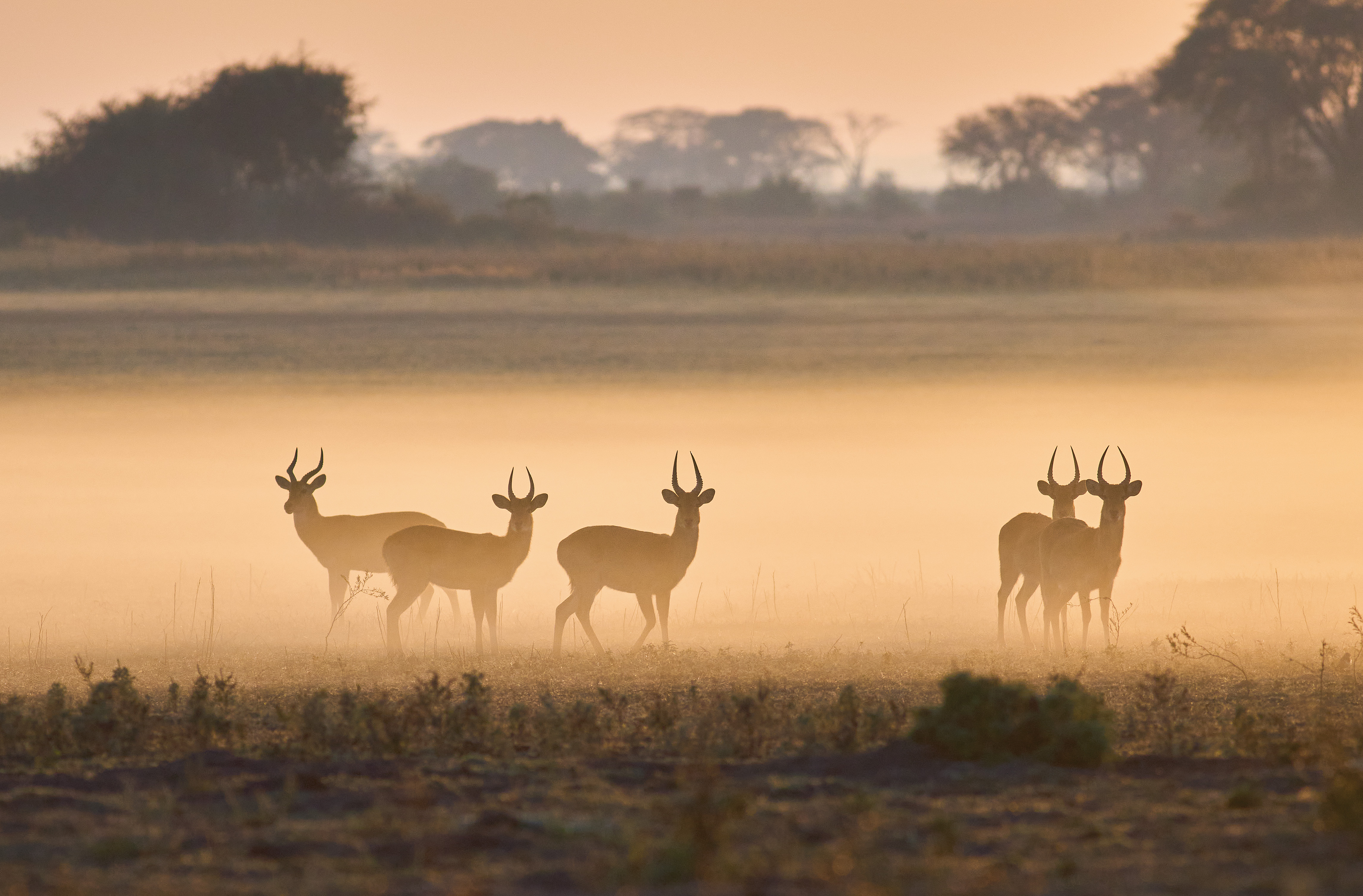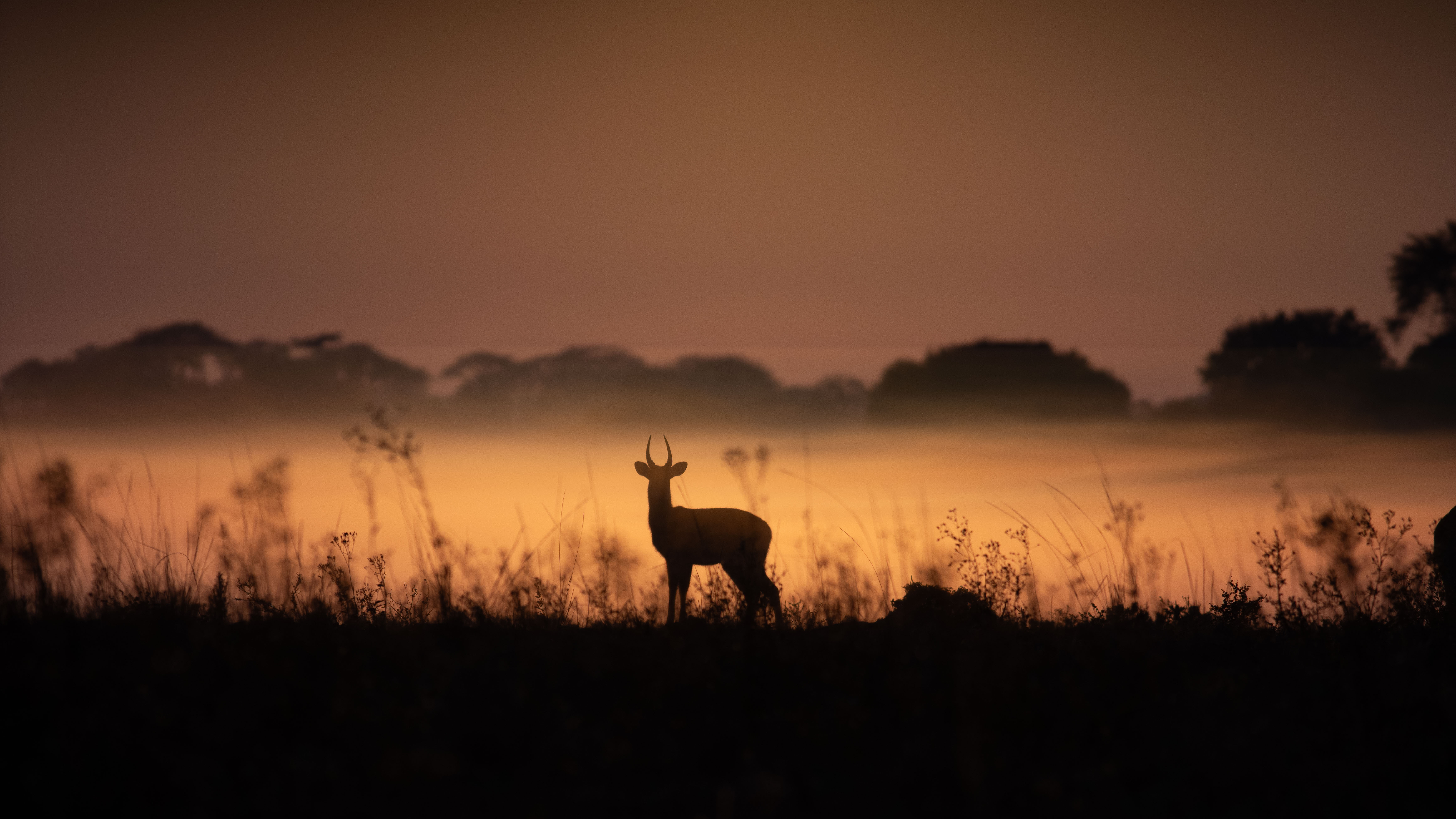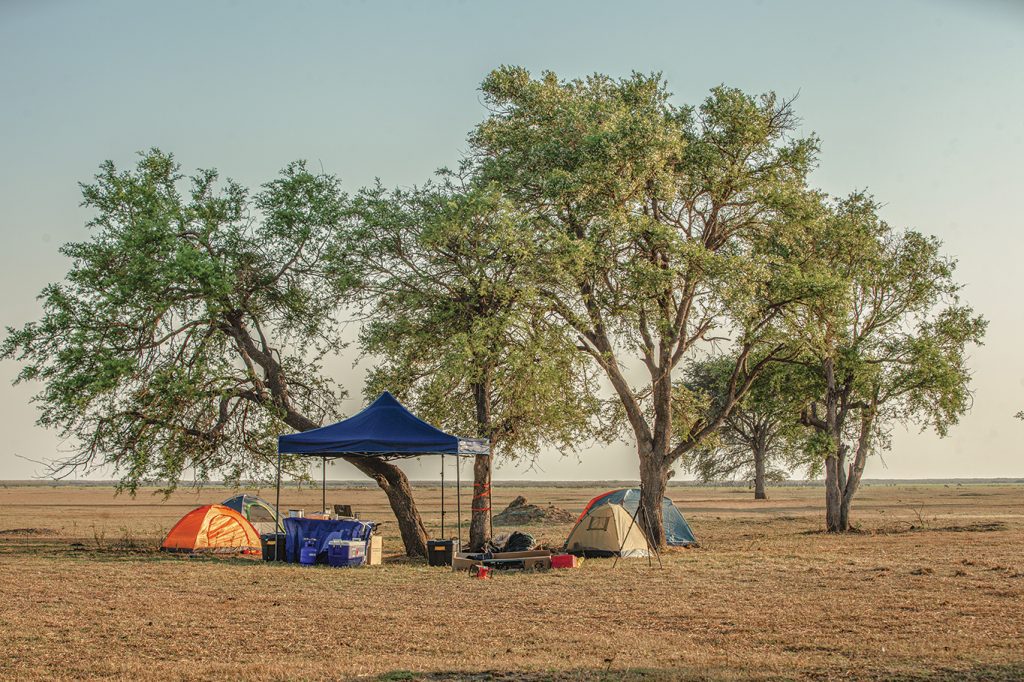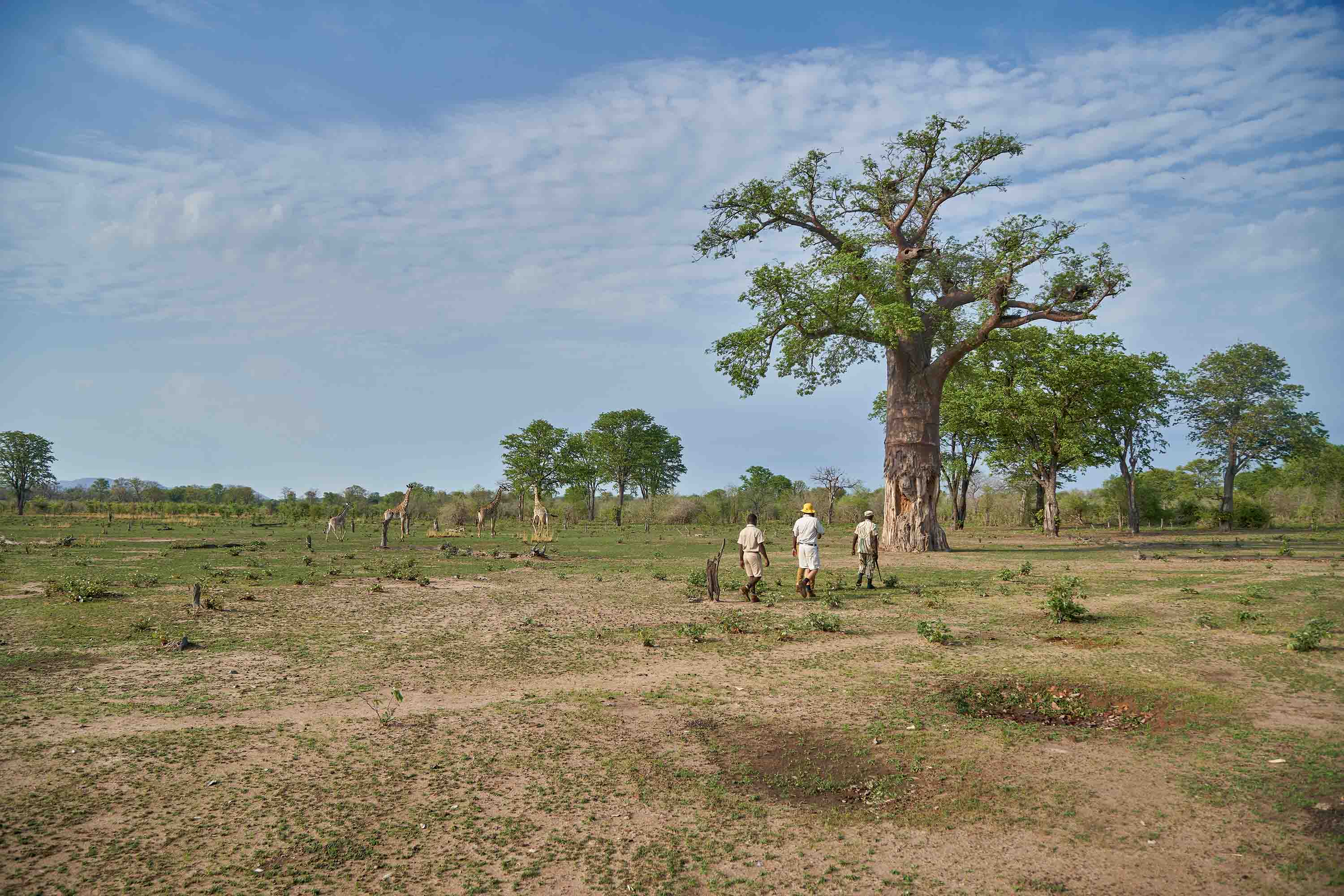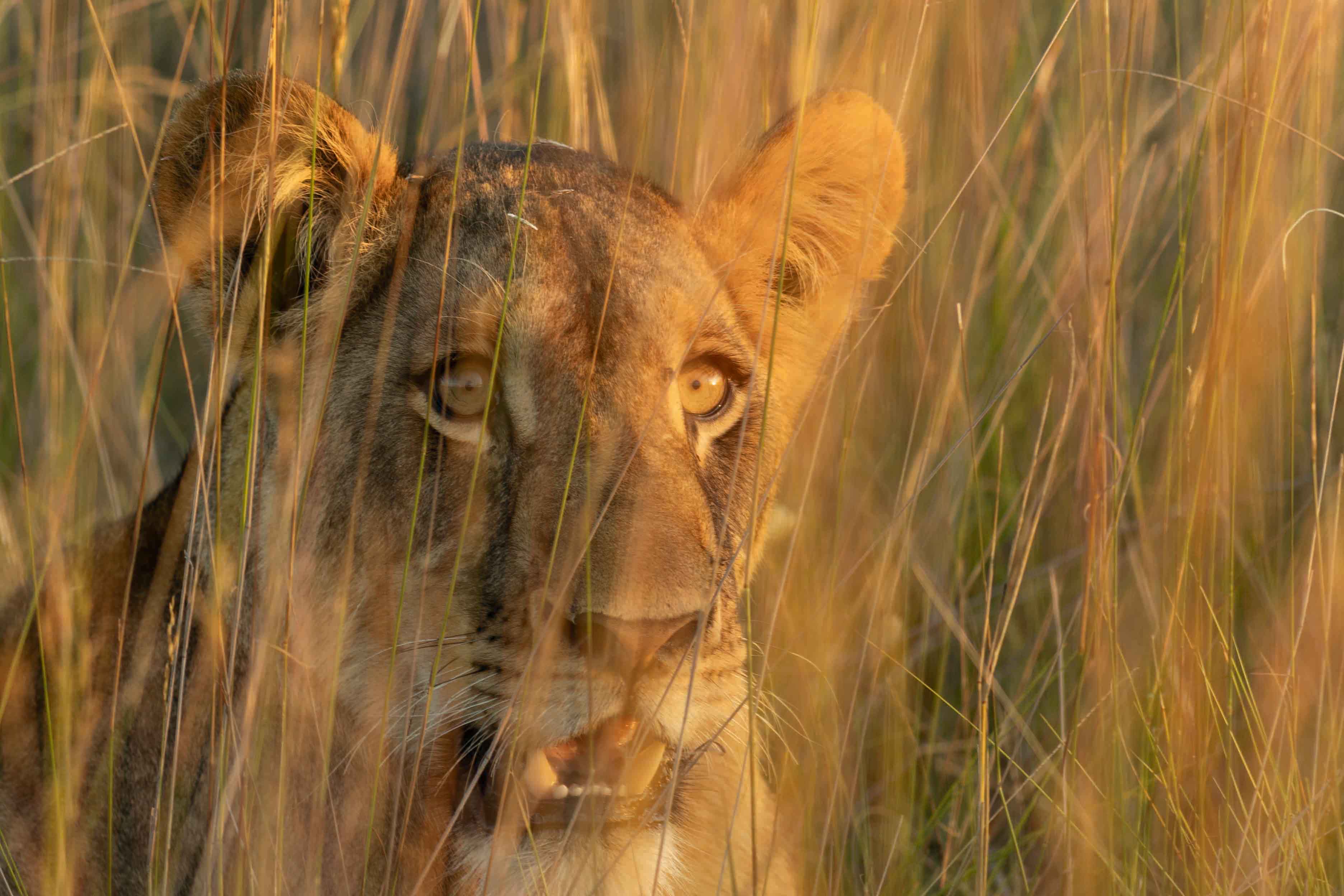Kafunfula Community Camp is Zambia’s first community-run tourism camp in the West Lunga ecosystem, a unique initiative fostering conservation and community development. If you are looking for a raw wilderness, self-sufficient safari in Zambia without all the frills, Kafunfula Community Camp and Ntambu Community Game Reserve beckon for an innovative take on eco-tourism, that is among the first of its kind in Zambia.
***
The leaves rustle the afternoon into a calming silence, but the birds are defiant, trilling and chirping their songs up in the tall trees that hunch over the campsite. Below them, John Phiri sits with one of the visitors, the one who has been asking the questions. The others are nearly out of earshot, talking about going to the school later. John is less nervous than he was in the morning, and the visitor wants to know in detail where it all began for him. Earlier, he mentioned that his uncle inspired him to pursue conservation. Now, he’s recalling a story about how a rhino once chased the same uncle up a tree while he was in the bush hunting for birds. It was these wilderness accounts that moved John to be closer to nature…
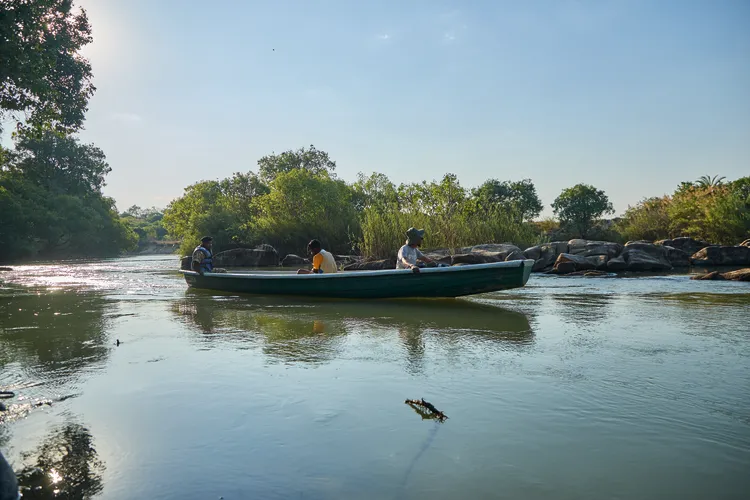
***
As soon as Venus Chiyesu sets foot into the classroom, the pupils bolt upright and greet him in chorus.
“Good afternoon, teacher,” they sing. He returns their greeting and asks them to sit down. He slowly paces in front of the classroom and asks his pupils to be on their best behaviour for their guests. But they’re barely paying attention to him. They can’t help but stare at the equipment belonging to the visitors. For Venus, it all began when he was just a young boy who dreamed of becoming a teacher. He wanted to help educate and uplift his community…
***
The old Zambian flag flaps lazily against the hot gusts of wind. Under the shade of trees that form the school’s perimeter, Wilson Kapumuna observes the children crowding the classroom windows to glimpse the strange visitors inside. He will address the importance of conservation with all the community members gathered at the school a little later. They will laugh and agree with him, a true man of the people. But it wasn’t always like this. The people of Musele Chiefdom didn’t readily accept the help of his committee…
***
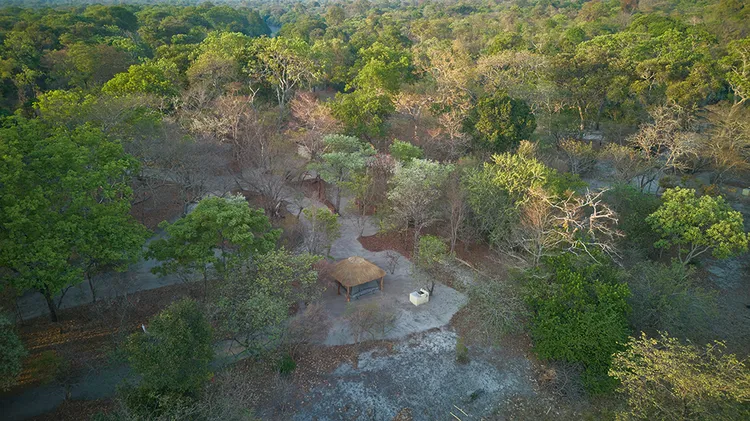
The three men are all connected through Kafunfula Community Camp. It is the serene slice of Northwestern Province you’ve never heard of. Overlooking beautiful views along the banks of the Kabompo River, you wake up to a symphony of birdcalls and rippling water. Initiated by The West Lunga Conservation Project—which was formed in 2014 through a collaborative partnership between the Department of National Parks and Wildlife (DNPW) and the Trident Foundation, with funding from FQM’s Kalumbila Minerals Ltd.—Kafunfula works with the community in Musele Chiefdom to foster a tourism-based economy that invites all people to visit the region. The camp is the first of its kind in the West Lunga ecosystem. John, Venus and Wilson all play essential roles in the area. These are their stories.
Nature Will Be Unkind to You
John Chizuma Kaweche Phiri is the Livelihood Supervisor of Kafunfula Community Camp. He grew up in various parts of the country, moving around with his family whenever his father’s council job required it. He played on the banks of Lake Bangweulu, learned to speak Tonga in Zimba and later moved to Lusaka before studying forestry.
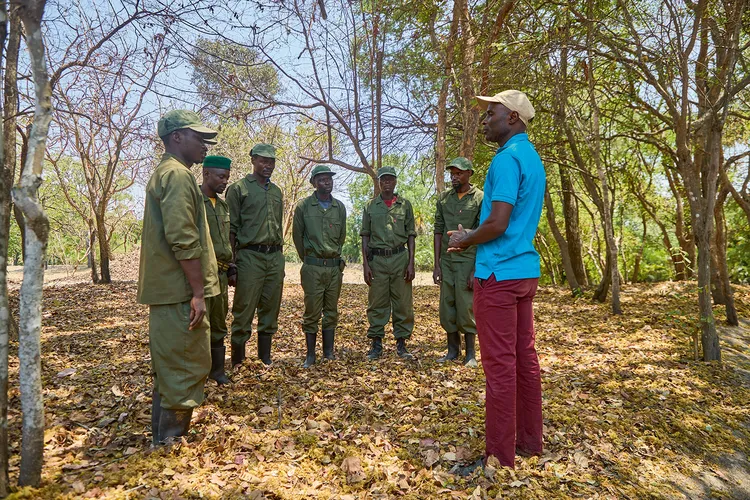
An uncle of his worked for the Department of National Parks and Wildlife (DNPW), eventually becoming a director in the organisation. His uncle was John’s first point of reference for animals and conservation.
“When we would visit his house, we would find all these animal trophies. He would share his wildlife experiences from his youth in the village, which sparked my interest.” John said. His uncle’s stories of the wild provided endless entertainment when John’s family lived on the outskirts and did not own a television.
However, even though John was a young outdoorsman at heart, taking his dog into the mountains of Katete and watching the animals flee from him, he told people he wanted to be an accountant when he grew up. It still pained him when he would see land shorn for subsistence farming and watch it flood with muddy water after heavy rainfall because of unsustainable agricultural practices.
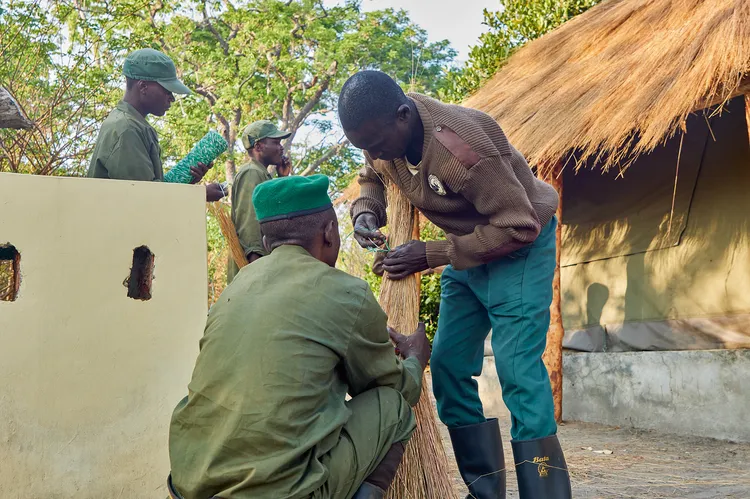
It wasn’t until he was much older, taking game drives with his brother, who worked in the Kafue National Park, that he decided he wanted to be where the animals were. The military training aspect of the DNPW did not appeal to him; thus, he chose forestry as his entry point.
Today, John acts as a go-between West Lunga and Kafunfula.
“Kafunfula is a good place. It’s ideal for relaxation, fishing and nature walks. And in [coming here], you also support community initiatives that spur development in this area. Because all the proceeds from Kafunfula Camp are ploughed into community projects that will assist or improve the community’s living standards”.
His work includes looking into the welfare of guests at the camp and patrolling the area for poachers with a security team. The anti-poaching work done in recent years has helped restore animal populations in the ecosystem. He hopes that the neighbouring Ntambu Community Game Ranch can complement this work.
The purpose of the Community Game Ranch is to encourage the legal acquisition of game meat,” he said. “Instead of risking their lives under cover of darkness, community members can acquire it legally from the butchery”.
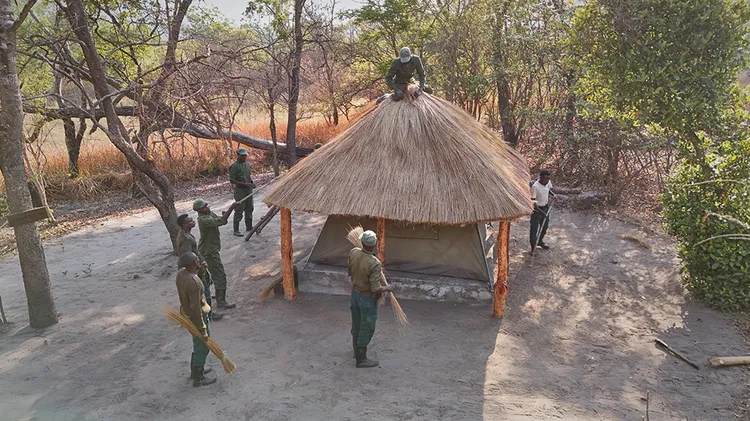
Asked about why he thinks his work is essential, John intones, “I feel my work is critical. It is because of what I’ve seen… if you don’t take care of nature, nature will be unkind to you. So, do everything that you can to help nature help you”.
She Understood That My Time Would Come
Growing up, Venus Chiyesu always wanted to be a teacher. When he got older, he made his dream a reality and specialised in mathematics. He started teaching at Wamafwa School in Northwestern Province, in the area where he was raised. However, after observing the lack of teachers and funding in this corner of the country, Venus chose to work as a volunteer.
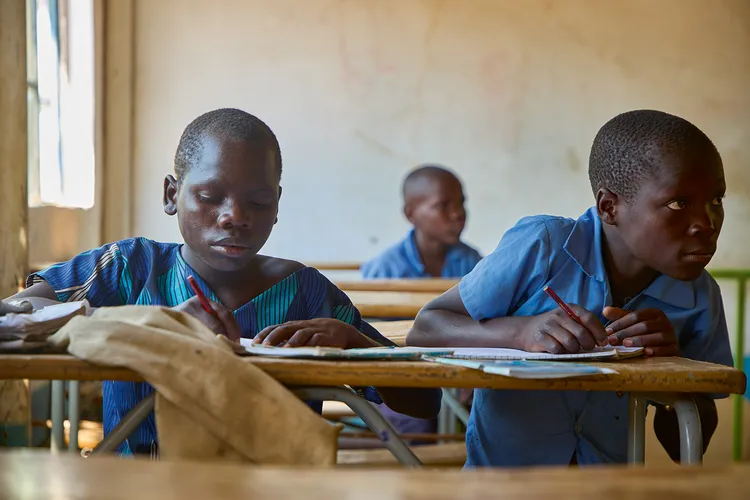
“I sometimes did some piecework just to buy soap,” he said about his challenges. On some days, this would create friction at home, but his wife remained supportive.
“She understood that my time would come,” he said.
It wasn’t easy, but Venus and his family made it work. They lived off their land, growing maise and vegetables for sale and sustenance. He felt he had a duty to his community to help the children learn and gain an education.
As the seasons changed, his work did not go unnoticed. The Kafunfula Committee met after consulting the community members on what project they could undertake to uplift their living standards. They agreed that Venus Chiyesu had been a big help to their children. In March 2023, he was transferred to Kashikuwe Community School and was to be paid a salary from the proceeds of Kafunfula.
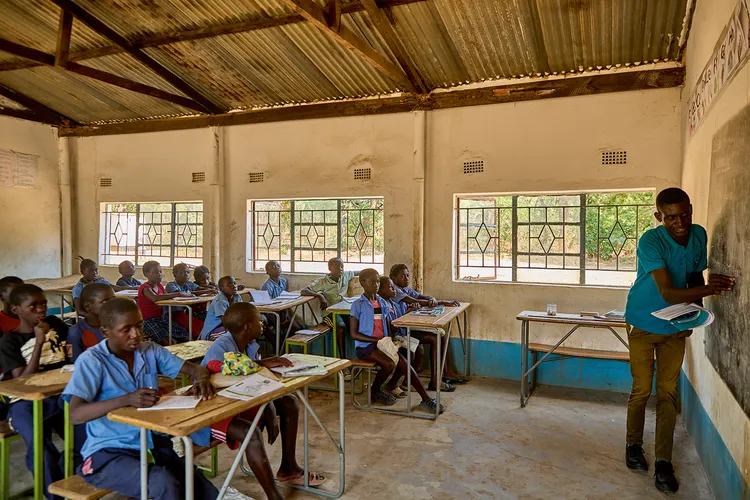
Venus teaches grade three and four pupils to love mathematics the way he did. He notes that they are even more eager to learn because he teaches them in their native Lunda and Kaonde languages. The pupils are excited about Creative Technology Studies, where they learn about safety and the theoretical aspects of woodwork, and Expressive Art, where they can draw and dance.
Today, he’s teaching a lesson about Mosi Oa Tunya and other locations in Zambia. As he does, one of the visitors stands outside the windows and another at the back of the class, filming him and the children. They’ve instructed the kids not to look directly into the cameras, but it’s hard for everyone not to. Venus is teaching the future generation of Kafunfula’s conservationists. Though they may not expressly learn about it, they know that conservation work through Kafunfula and West Lunga pays for their school’s repairs and one of their three teachers’ salary. They can see the rewards of caring for their natural environment.
“I’m also learning from the children,” Venus said. This is why he’s passionate about education. The sometimes tricky questions that the children regularly ask encourage him to think critically about what he’s teaching and how to make them understand it.
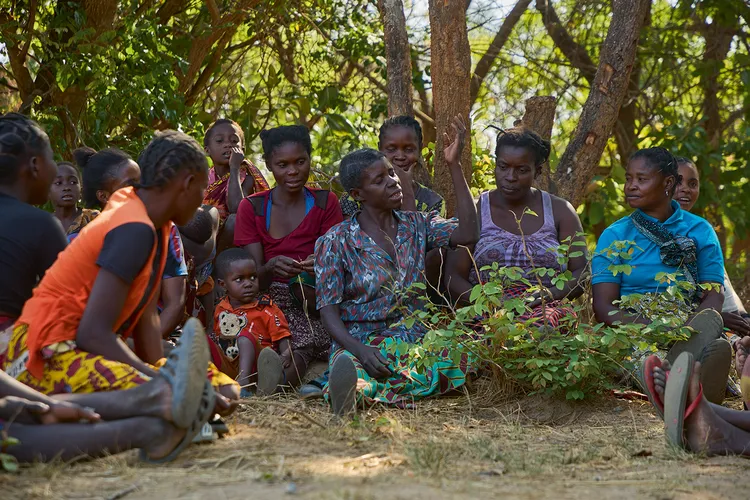
Others Simply Come to See the Birds
Wilson Fwani Kapumuna, Chairperson of the Kafunfula National Resource, had never really paid attention to conservation. He’d never needed to. He was a small-scale merchant who bought fish in Kasempa and resold it in Musele Chiefdom, his home. In his travels, he encountered a conservancy where the community lived in relative harmony with the animals. He had no idea he would become a conservationist nearly a decade later. Though he can’t quite remember the name of the organisation he encountered in Kasempa, their care for the animals and the environment is something he’ll never forget.
In 2017, he and a handful of people began discussing establishing a community cooperative and committee to help people value their natural surroundings. Unfortunately, they did not have enough resources to make any real impact in their village. About two years later, the West Lunga Conservation Project (WLCP) came to Musele. Wilson was reminded of the conservancy he saw in Kasempa and jumped at the new proposal. Unfortunately, the local leadership didn’t share his enthusiasm. In response, WLCP initiated a trip for the indunas to visit Mumbwa in Southern Province to observe and learn from the residents' conservation efforts there.
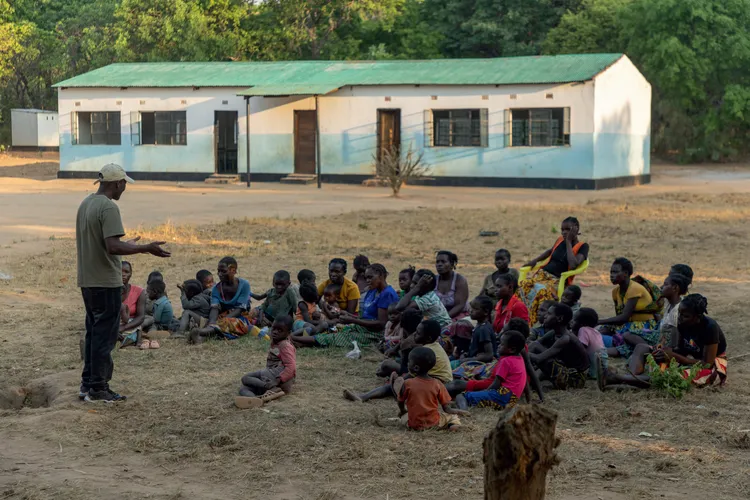
The people of Musele did not readily understand or embrace the West Lunga conservation initiative either. They were afraid that they would be exploited and that there would be no benefit or economic value to be gained from the project. But the indunas returned with good news; they had seen the proverbial light. The inhabitants finally began believing in the initiative when the proceeds from the newly established camp could afford volunteer teacher Venus Chiyesu a salary and build ablution blocks for the staff and pupils at Kashikuwe Community School.
Wilson and his contacts at WLCP and Kafunfula had also previously introduced conservation agriculture, beekeeping and fish farming to the people of Musele. However, today, the people in the village mainly focus on beekeeping to earn some passive income from their natural environment. It is through these exercises that Kafunfula tries to sensitise the people on how imperative it is to care for their forests.
“Conservation as a way of life has better economic value for the people,” Wilson said. “It affords them a better standard of living”.
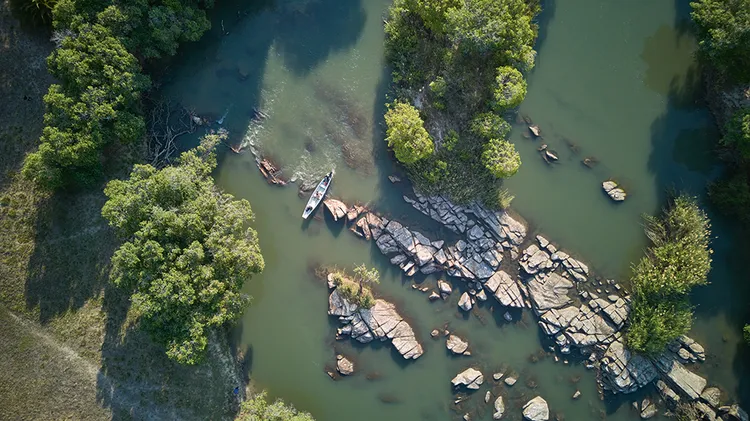
He is passionate about his work on the committee. He can be seen giving the Kafunfula Camp security patrol team pep talks on how they need to remain vigilant in their lookout for poachers and how fewer poachers mean more animals. And the more animals the area has, the more visitors the camp will receive. This encourages a conservation-based economy.
The forests of Northwestern Province are the only location in Zambia where you’ll find the tree pangolin. It is one of the lesser-known species you can find in the West Lunga habitat. It draws visitors and researchers from various parts of the world.
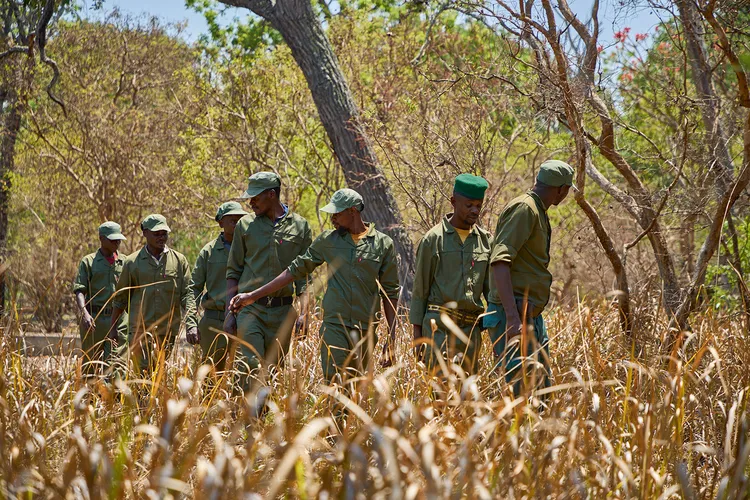
“Others simply come to see the birds,” Wilson added. The West Lunga National Park and Lukwakwa GMA were dubbed “Important Bird Areas” in 2005 by BirdLife International. Some of the birds you might see include the half-collared kingfisher, purple-throated cuckoo-shrike, Ross’s turaco and the African finfoot, to name a few.
Wilson watches as the children leave the classroom. He murmurs something to the man beside him as the visitors follow them to the large, dusty playground. It looks like the football match is about to begin. He considers whether the heat of the October sun is worth braving to see the children play. It is. They will be happy to see him cheer them on.
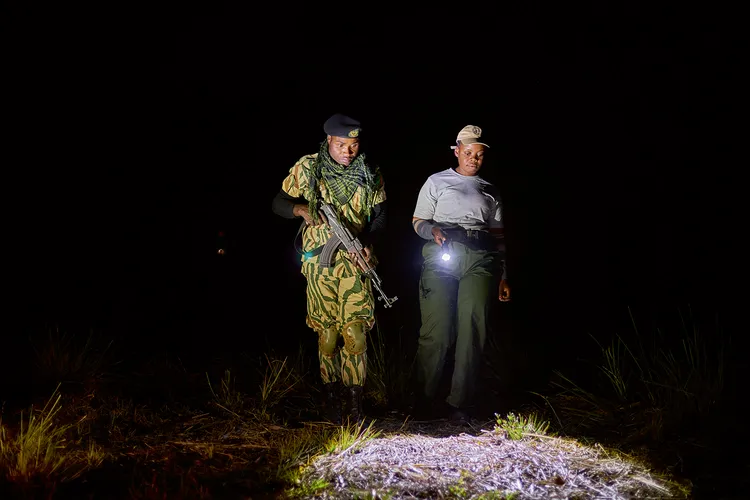
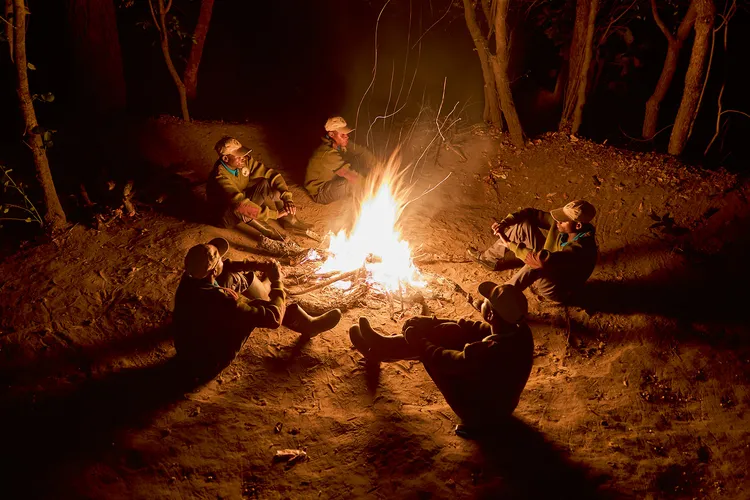
Epilogue
John Phiri sits by the banks of the Kabompo River, gently shaking his leg in a camping chair. The early morning mist has cleared off the water’s surface, and it promises to be a busy but beautiful day for the film crew. John is a little nervous. The visitors from Nkwazi Magazine are shooting a documentary on Kafunfula Community Camp and its impact on the area. The man interviewing John asks him to loosen up.
“Imagine you’re conversing with a friend,” he says, smiling.
One of the two men with the cameras gives the signal, and they begin recording. They want to know where it all began.
